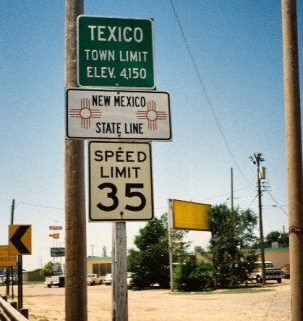Crossing The Line: Jurisdiction
Jurisdictional issues come up all the time for police officers. Criminals are extremely mobile and, unfortunately for local cops, they simply don’t stay put waiting for detectives to come and get them.
Jurisdiction (according to Blacks Law Dictionary) is a geographic area in which a court has power or types of cases it has power to hear. For law enforcement officers, that jurisdictional boundary covers the area where they are sworn to protect and serve as police officers.
City officers are sworn (raise their right hand and repeat an oath to protect, serve, and enforce all laws) to protect and enforce the laws of the city where they’re employed. County officers are sworn to protect and enforce the laws of the counties where they’re employed (which also includes towns and cities located within the county). State officers are sworn to enforce laws in their state, and federal officers are sworn to enforce laws throughout the country.
In most cases, police officers aren’t allowed to conduct an arrest in any area that’s outside their jurisdiction. In fact, some arrests conducted outside an officer’s jurisdiction are considered illegal.
Unfortunately, bad guys aren’t held to such standards. Why, they’ve even been known to kill somebody in Florida and flee all the way to Washington state. The nerve of those guys. They just don’t abide by the rules.
So when bad guys do flee the scene of a crime, officers issue warrants for their arrest, and they issue a BOLO (Be On The Lookout). Then, when the crooks are spotted in Washington state, the Northwestern cops can make a legal arrest based on the information they’ve received from the authorities in Florida.
There are exceptions to the jurisdictional restrictions for police officers. When can they go outside their home territory to apprehend a criminal?
1) During a hot pursuit. Officers can legally pursue a fleeing felon across jurisdictional boundaries as long as they maintain visual contact with the suspect. However, if the officer ever loses sight of the suspect the pursuit is no longer considered fresh, and they must terminate the chase (There are always exceptions. Remember, we’re talking about the law).

2) An officer can make a legal arrest outside his jurisdiction if she is responding to a request for assistance from another agency.
3) In some areas, as long as an officer has possession of a legal arrest warrant she can serve it on the suspect anywhere in her state. (again, check local laws).
4) Many jurisdictions have a specified allowance of distance their officers may travel to make an arrest. This provision in the law is because there is no physical line drawn on the ground to determine the actual city limits. Officers acting in good faith may make an arrest within these provisional boundaries.

However, in Limestone County, Alabama, this law is in effect:
In Limestone, no police jurisdiction of a municipality located wholly or partially within Limestone county shall extend beyond the corporate limits of the municipality. (Amendment 499; Proposed by Act 88-306, submitted at the Nov. 8, 1988, election, and proclaimed ratified Nov. 23, 1988, Proclamation Register No. 6, p. 56).
5) Officers can make a citizens arrest anywhere in the country, just like any other person in the same situation. And that’s exactly what Gomer did when Barney Fife made the illegal U-turn.
6) Interestingly, Ohio state patrol officers have no jurisdiction on private property. Their arrest powers cover only roadway patrol and public land. (Please correct me if I’m wrong, Lt. Swords).
And, I feel compelled to answer the question I see asked almost every single day. Here goes:
NO, the FBI does not ride into town and take over cases from local police departments. They have other things to do. Spies. Terrorists. Hackers. Pedophiles. Mobsters, etc.
Besides, as a rule, the FBI doesn’t work murder cases. Local police departments, sheriffs offices, and state police are more than capable of handling their own cases.
And they do.







SZ – If the pursuing officers lose sight of a suspect vehicle then they must terminate the pursuit. I don’t mean they have to stop, however, if the suspect goes around a curve and they temporarily can’t see the car. I’m talking about completely losing the suspect. No sign of the car anywhere.
Bud – the location where the crime occurred is the jurisdiction that will handle the case as the lead. But, if other aspects of the crime took place in other jurisdictions the agencies involved will work together. This happens all the time. The suspect’s will be tried where the crime occurred.
Of course, if the department is small with no resources, they may call on the county or state to help out, or take over.
So if an officer is in pursuit and loses site, then catches back up while out of her area, can she make a citizens arrest and then bring back them back to make a police arrest ? Guessing you would have already said though.
How do you think television became so fascinated with the FBI ?
I have a couple of stories set in (real) places that have a lot of overlap of jurisdiction: a city police force, a county police force, a county sheriff, a state bureau of investigation. Does the first agency to catch a case keep some sort of priority? Is there a strict protocol for precedence or cooperation? Or does it have to get worked out, each time, depending on how the thing develops?